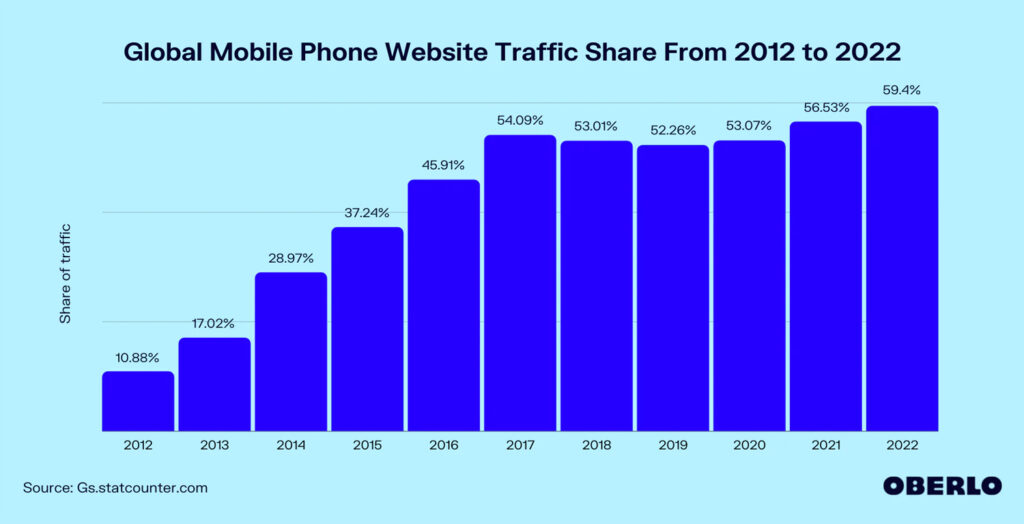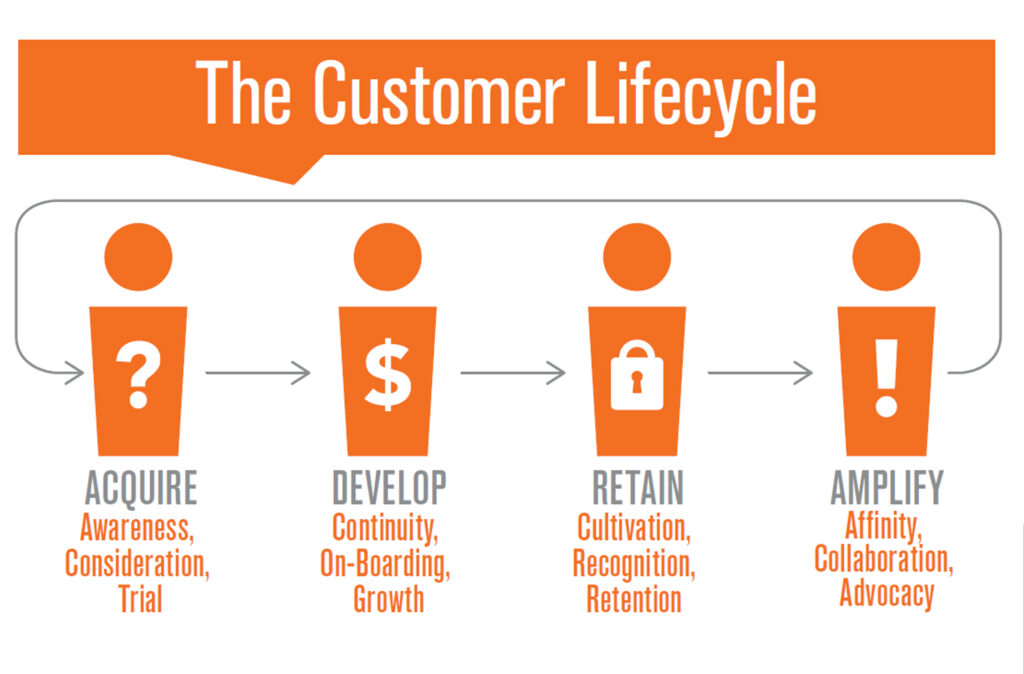The beginning of a new year is an opportunity for businesses to reflect on their marketing efforts from the past year. After all, your business will likely look very different from 365 days ago. The market changes, your company grows, consumer demand can shift over time, and marketing trends evolve as new information and technology become available. By staying attuned to current B2B marketing trends, you can ensure you’re keeping up with your competitors and delivering the most relevant information to your audience.
Keep reading to learn what B2B marketing trends to keep an eye on in 2023.
Key Takeaways
- B2B marketing is the tactics a business uses to promote itself to other companies.
- Because the manufacturing industry can be complex and expensive, B2B marketing is especially important in giving buyers the confidence they need to convert.
- From outsourcing marketing efforts to mobile optimization, there are six major trends in marketing for manufacturing companies to note in 2023.
Why is B2B Marketing Important for Manufacturers?
B2B marketing is the approach and tactics a business uses to promote itself to other companies. Strategies could range from content marketing for manufacturing companies and social media ads to SEO basics for manufacturing and industrial companies to email campaigns.
The following video further explains B2B marketing with real-world applications:
Source: Professor Wolters on YouTube
The manufacturing industry is constantly evolving. From new machinery and tools to updated regulations and restrictions, manufacturers must constantly ensure they’re delivering current information to their audience. Additionally, the world of manufacturing can be a confusing and expensive place. Buyers want to be sure they’re making the right purchase decision that solves their problems while maximizing their budget. For these reasons, B2B marketing for manufacturers is extremely important.
Describing features and functions of mechanical products in a way that buyers can understand is a unique challenge to this industry. Manufacturers must develop a marketing strategy that helps companies understand their purchase options and gives them the confidence they need to convert. Essentially, B2B customers choose purchases based on pricing, profit potential, and operational requirements. B2B marketing helps a product-driven business deliver a customer-driven message.
6 B2B Marketing Trends in 2023
As consumer needs, demands, and preference change, so must marketing trends for manufacturing companies. Here are six B2B marketing trends that could have a significant impact on your business in 2023.
1. Outsource Marketing Efforts
Effective B2B marketing consists of several important elements, like:
- Audience research
- Keyword research
- Content development
- Content distribution
- Analytics
These can be extremely time-consuming and can easily overwhelm a team, especially if workers are also responsible for other areas of the business. That’s why some companies hire third-party individuals or agencies to take on their marketing efforts.
Whether you outsource all of your marketing efforts or just outsource content development, hiring a third-party marketing group frees up your employees to focus on other duties. It also allows trained professionals to create and execute an effective strategy for optimal results.
2. Mobile Optimization
Since more than 60% of internet use is accessed via mobile devices, digital marketing efforts must be optimized for mobile. Make sure images are embedded and not attached to prevent slow page load times. Graphics should be scalable to maintain their quality on varying screen sizes. Text passages should be formatted so important information isn’t cut off on smaller screens. Avoid awkward paragraph breaks that would be difficult to read on mobile devices.

Your online visitor should have the same positive user experience regardless of whether they’re accessing your site from a mobile device or a desktop computer. Additionally, be sure to maximize your market share by keeping mobile users in mind as you design your website. You also want to incorporate website must-haves for manufacturing companies.
3. Post-Conversion Engagement
Customer retention is critical to the success of your business. After all, 65% of a company’s sales come from existing customers. Your interactions with buyers shouldn’t end once they’ve made a purchase. Maintain ongoing relationships with them through post-conversion engagement using messaging that appeals to their interests and unique needs.
You already know what kind of products they’re looking for and have chosen you over your competitors. Use that information to target customers with relevant offers and conduct customer satisfaction surveys. Seeking your customers’ opinions about your brand makes them feel valued. This increases the likelihood of repeat purchases and builds customer loyalty through post-conversion engagement.

4. New Analytics Tool
Google’s Universal Analytics is a commonly used tool businesses use to track the efficacy of their marketing efforts. Users like it because it provides invaluable insights into website traffic. Google plans to retire this tool in July and replace it with Google Analytics 4.
The new Google Analytics 4 will enable data integration, align better with eCommerce, and better depict how online users engage with brands. It will afford B2B marketers a deeper understanding of user behavior across devices and track offline conversions. Marketers will get insights into the audience journey through the marketing funnel and how it relates to their digital marketing efforts.
5. Influencer Marketing
Today’s society relies heavily on the experiences and recommendations of online personalities. By getting a social media influencer (someone with a large loyal following) to mention or endorse your brand, you can connect with their followers. You also gain credibility and trust because someone these people admire is a fan of your products.
Research influencers in your target market and see who has the greatest following. Review their material to see what brands they’ve promoted in the past, and then monitor social media forums and chat threads to see what people are saying about the mention of the product or the product itself. If the response is positive, consider reaching out to that social media celebrity to partner with them. If they’re trusted and revered in your field, they could help increase your brand awareness and drive traffic to your business.
6. AI and Machine Learning
Artificial intelligence (AI) and machine learning (ML) are powerful tools for today’s B2B marketers. Algorithms help your digital marketing team understand user behavior and customize the user experience to ensure people see information relevant to their needs. This allows you to deliver a highly customized user experience, increasing conversions and generating more revenue.
AI also ensures that data is collected from actual users so you receive accurate metrics. Additionally, it can help you better manage that data, breaking down silos and granting you access to the information you need to adjust your marketing strategies for the most profitable outcome.
Capitalize On Today’s B2B Marketing Trends
Shanahan Strategy is an advertising and marketing agency that develops effective brand marketing for manufacturing companies to help businesses succeed.
Contact Shanahan Strategy today to learn how we can help you implement today’s B2B marketing trends for optimal results.

